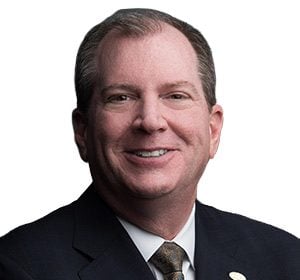Governance Surveys
Directorship Magazine
On January 14, the leader of the world’s largest asset manager, the $7 trillion BlackRock, released a letter challenging CEOs—and by implication boards—on a major global risk. Referencing new research from McKinsey & Co. on the “socioeconomic implications of physical climate risk,” Larry Fink urged CEOs to do more to mitigate the impact of climate change and to improve disclosures on its impact.
Replete with calls for companies to serve their “stakeholders,” the Fink letter immediately drew comparisons to the Business Roundtable’s historic August 2019 statement along these lines.
BlackRock does adhere to stakeholder values in this sense. But with all due respect to the concept of stakeholder value, I draw a far different lesson from the Fink letter. In my view, the takeaway here is not so much about who (stakeholders versus shareholders) as about what (climate risk) and when (over the long term).
What
For the “what,” climate change is clearly a risk—a fact underscored by the World Economic Forum’s Global Risk Report 2020, released the day after the Fink letter. BlackRock is not the only investor concerned about it: The Climate Action 100+ investor initiative, which represents 370 investors with more than US$35 trillion in assets under management, works with its portfolio investment companies to “ensure they are minimizing and disclosing risks and maximizing opportunities presented by climate change.”
In our 2019-2020 Public Company Governance Survey, climate change was cited as a top environmental, social, and governance (ESG) concern by just 25 percent of respondents. In 2020, we believe more boards will ask their management teams to evaluate if their company is exposed to climate risk, whether physical risk (such as impact of a weather event) or transition risk (such as big shifts in asset values or higher costs of doing business). We do know that 30 percent of our respondents who met with investors discussed climate change in those meetings.
In 2018, we released our third Blue Ribbon Commission report on risk oversight. Adaptive Governance: Board Oversight of Disruptive Risks covers climate change risk in some detail—discussing specific impacts of both natural disaster incidents and longer-term environmental depletion—as well as features other risks such as cyberattacks.
I think we can expect a call for increased disclosures to investors on how climate change is being discussed in the boardroom and viewed by the company as a whole. Boards should prepare for more scrutiny from investors of all sizes and should be prepared to enhance disclosure of materially significant risks that are caused by climate change. (Be on the lookout for an NACD primer on the topic later this year.)
When
As for the “when,” BlackRock is to be commended for its emphasis on long-term returns. This is a message NACD has been promoting for years—notably in the 2015 report from the Blue Ribbon Commission on The Board and Long-Term Value Creation. As cochairs Karen Horn and Bill McCracken stated on behalf of that Commission, “We believe boards of directors have a fundamental responsibility to help management navigate today’s complex and changing business environment without allowing a ‘meet or beat the quarter’ mentality to undermine or dilute the company’s focus on long-term strategic objectives.”
This quote could well apply to concerns about climate change and other risks. Protecting against such risks may require an investment that will decrease profits in the short term, but will prove wise in later years.
Who
Last but not least, we come full circle back to the “who”—as in shareholders and other stakeholders. There is a bit of irony here: Fink wants corporations to attend to all stakeholders rather than merely shareholders, but he is focused—as he should be—on long-term shareholder returns. Fink’s emphasis is that climate change presents a financial risk to the company and therefore its shareholders. The letter, titled “A Fundamental Reshaping of Finance,” notes that BlackRock invests on behalf of other shareholders and has “a deep responsibility to these institutions and individuals—who are shareholders in your company and thousands of others—to promote long-term value.”
Fink’s point is that unless companies pay attention to risks such as climate change, then their financial returns will worsen over time, harming investors—including BlackRock’s.
BlackRock is an asset manager and therefore has a fiduciary duty to maximize shareholder returns. But corporate directors are not investment fund fiduciaries. They serve as fiduciaries for the corporation as a whole, and while they must serve shareholder interests before their own under the duty of loyalty, this duty does not exclude considering other stakeholders.
In the long run, shareholder and stakeholder values converge. A company cannot create long-term value without serving the long-term interests of other stakeholders—including the planet itself.

Peter R. Gleason is president and CEO of NACD.


